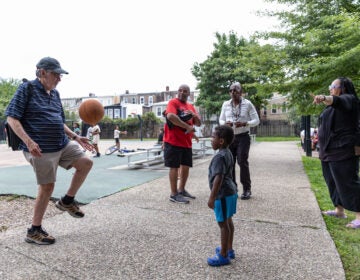Dalai Lama: The world is interconnected, no one can shirk responsibility
-
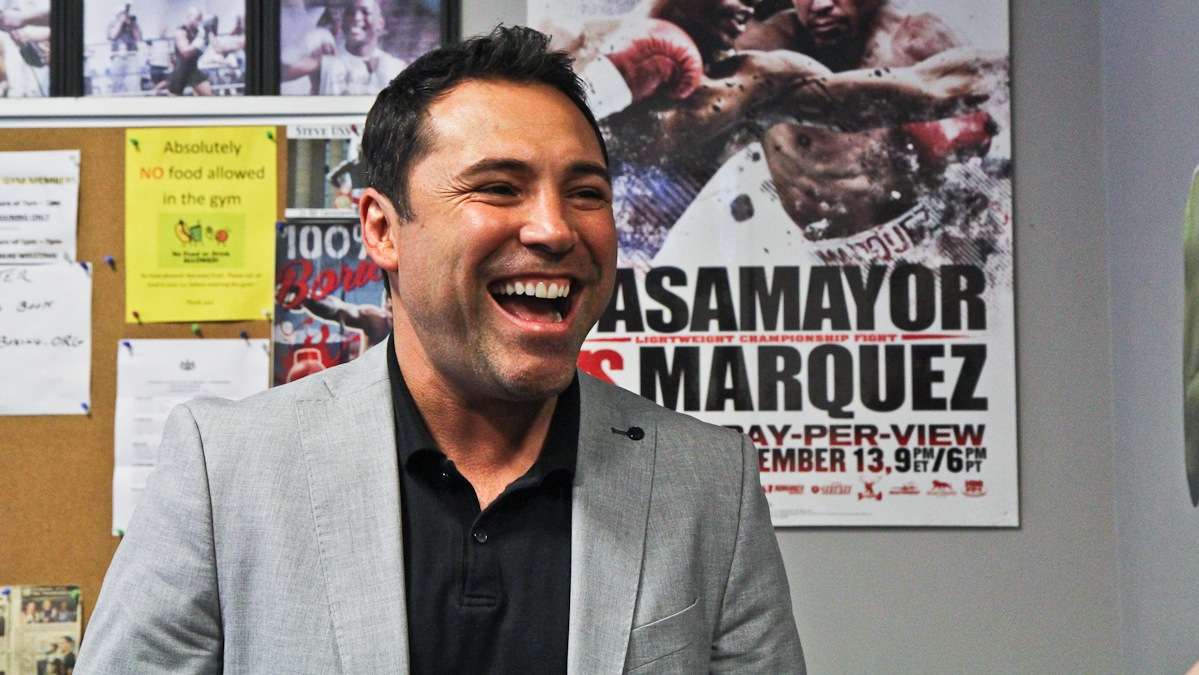
-
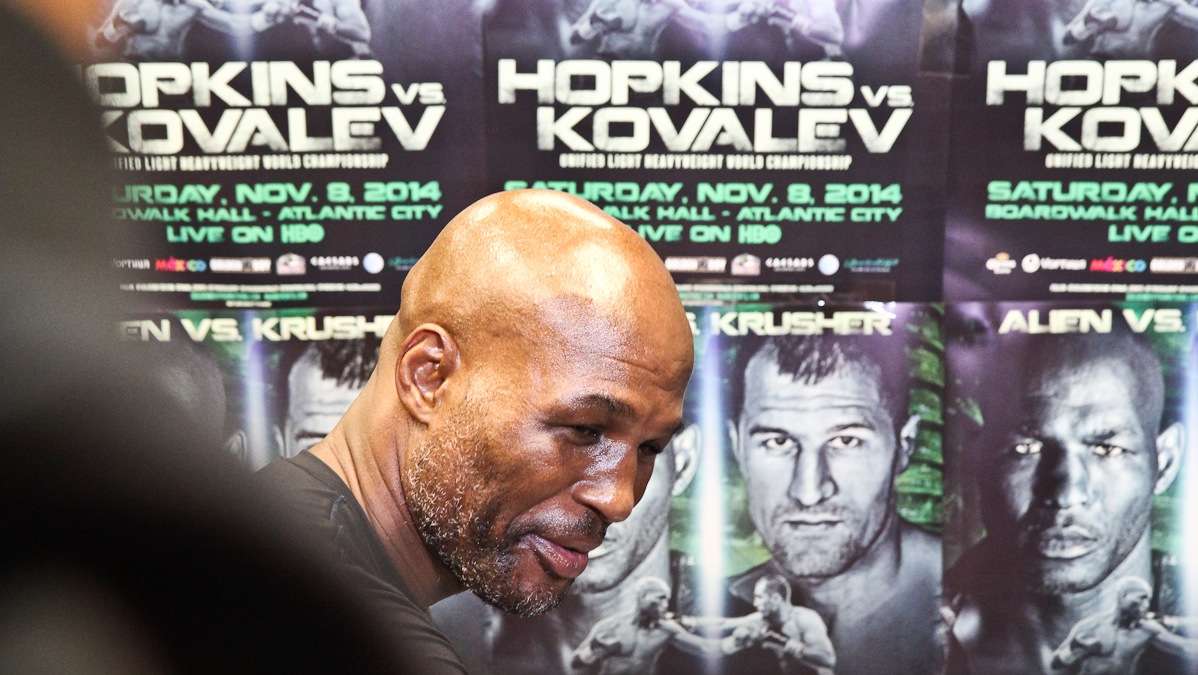
-
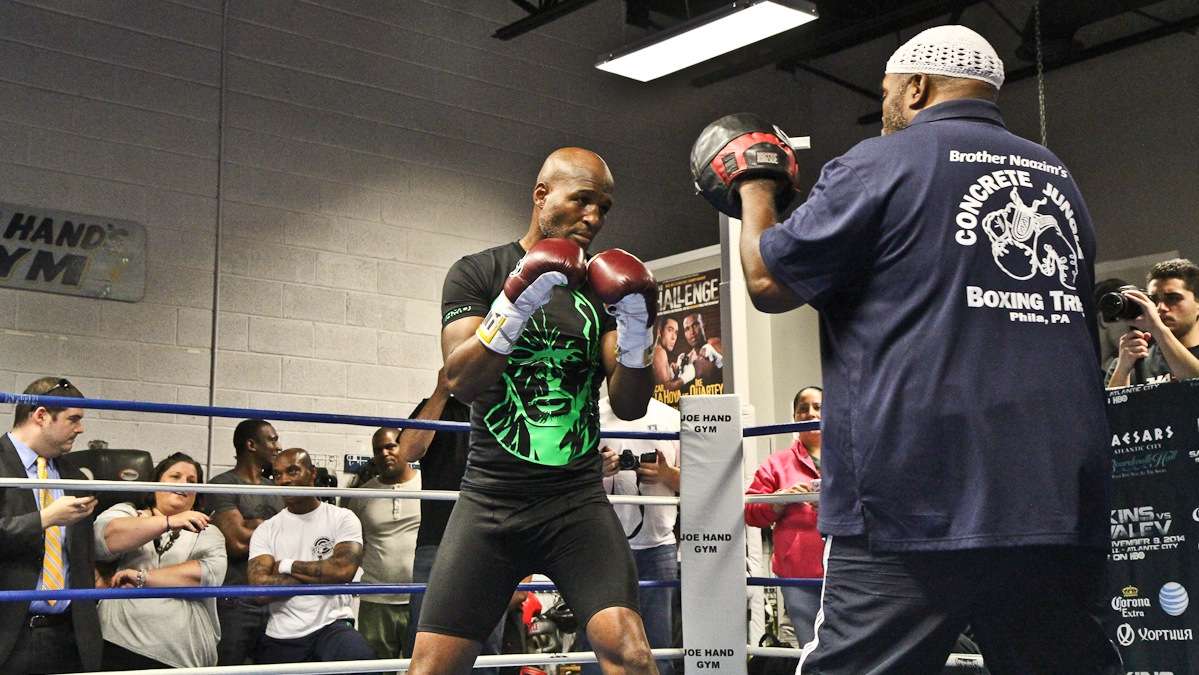
-
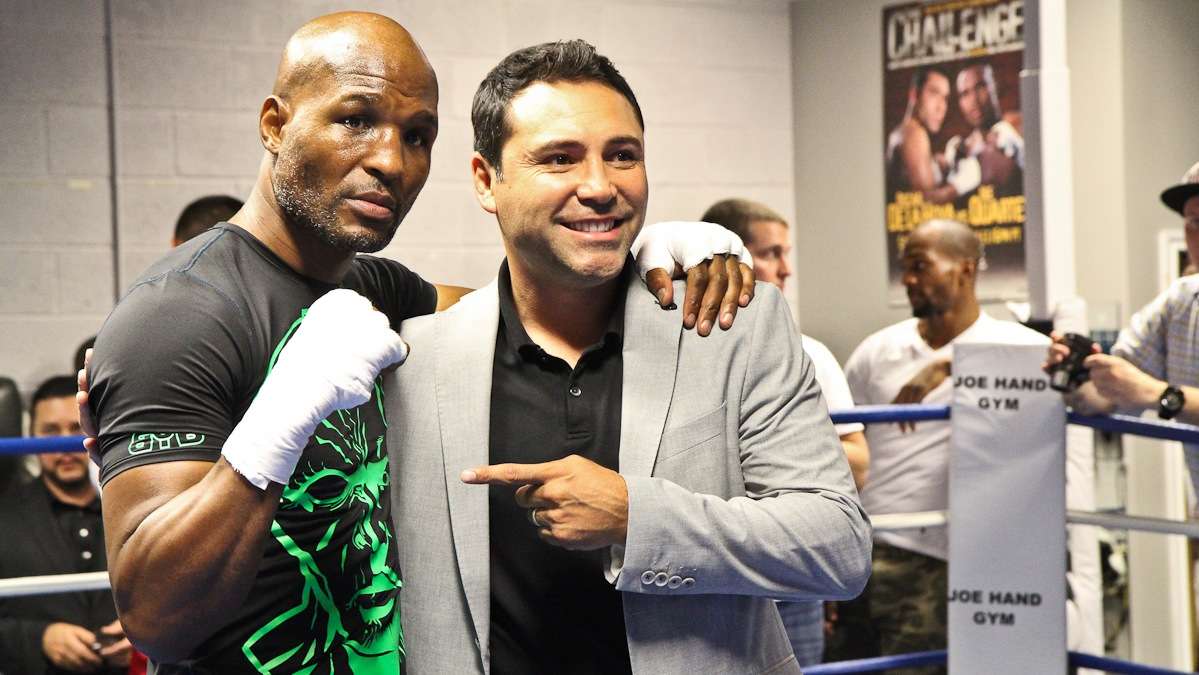
-

-
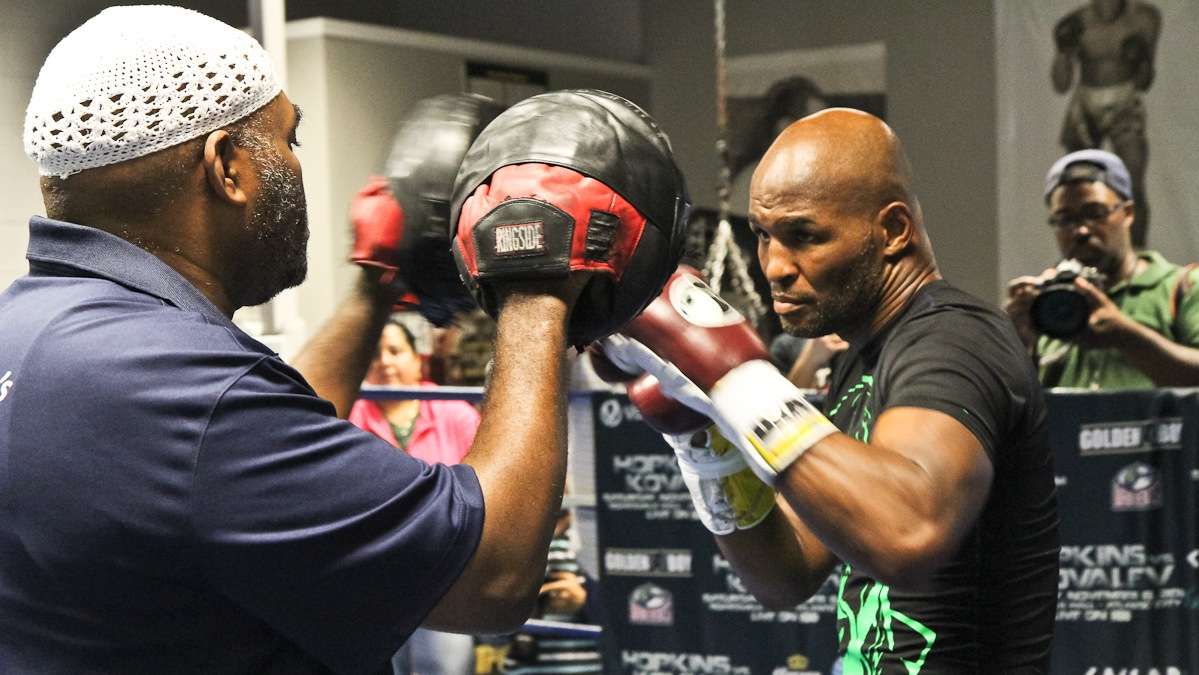
-
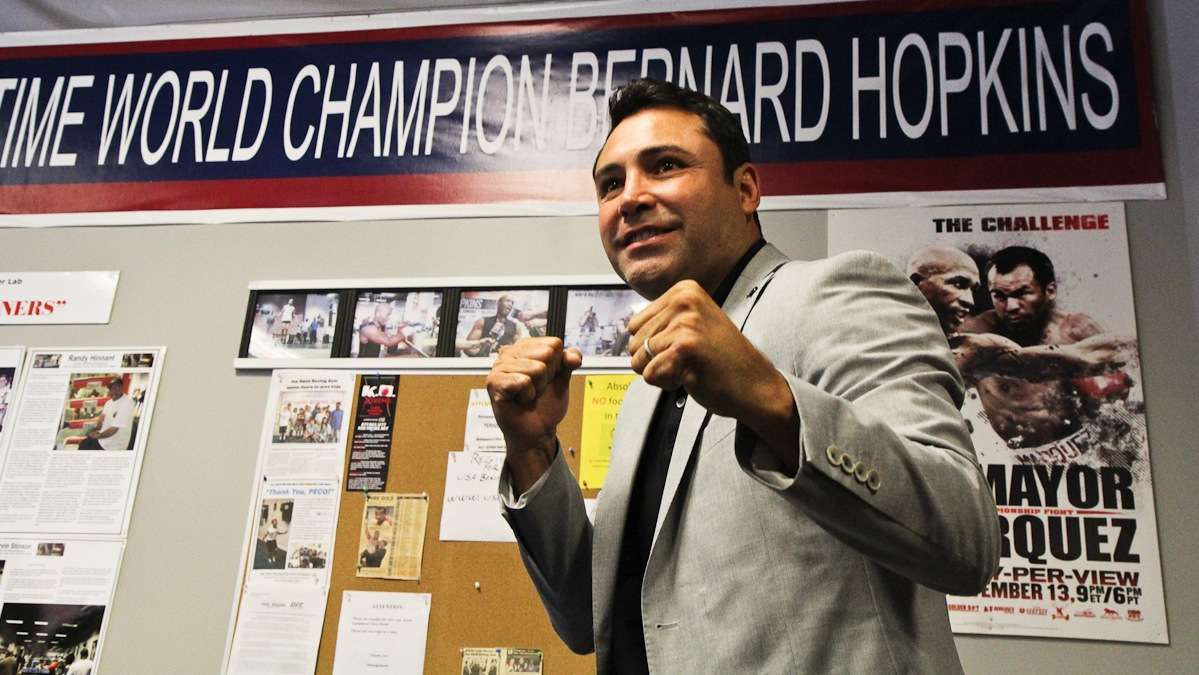
-

-

Walk the Manyunk Bridge as part of Friday's 'Gobble Gobble Walk.' (Bas Slabbers/for NewsWorks)
-

-
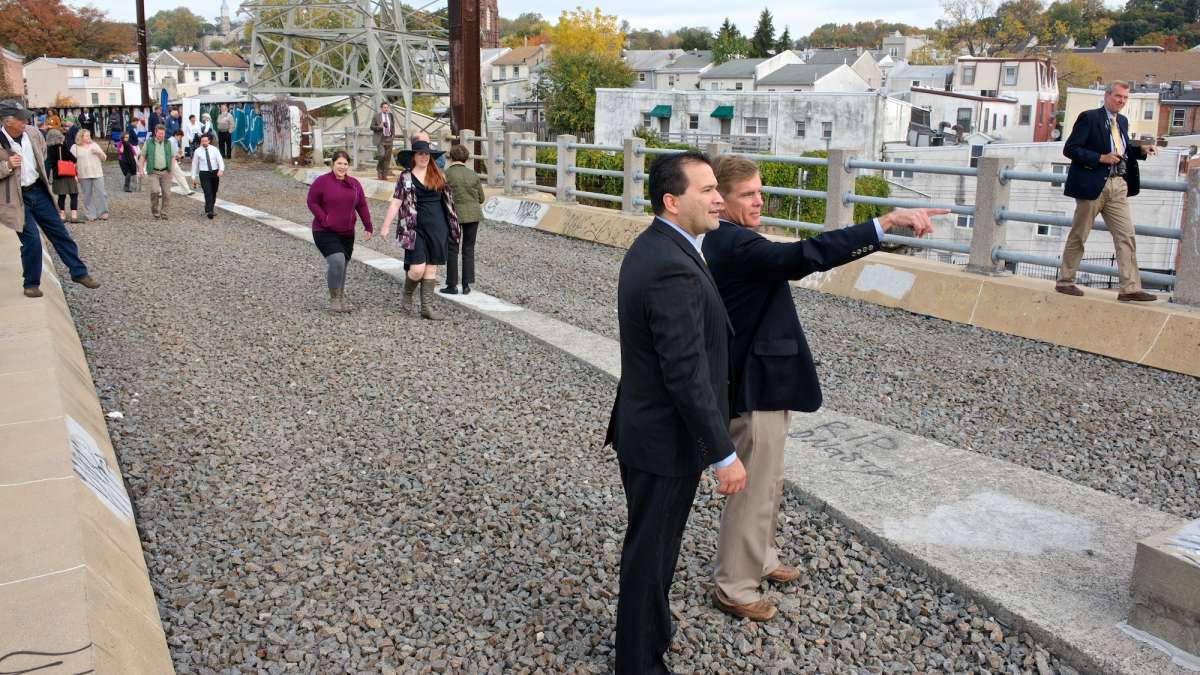
-

-
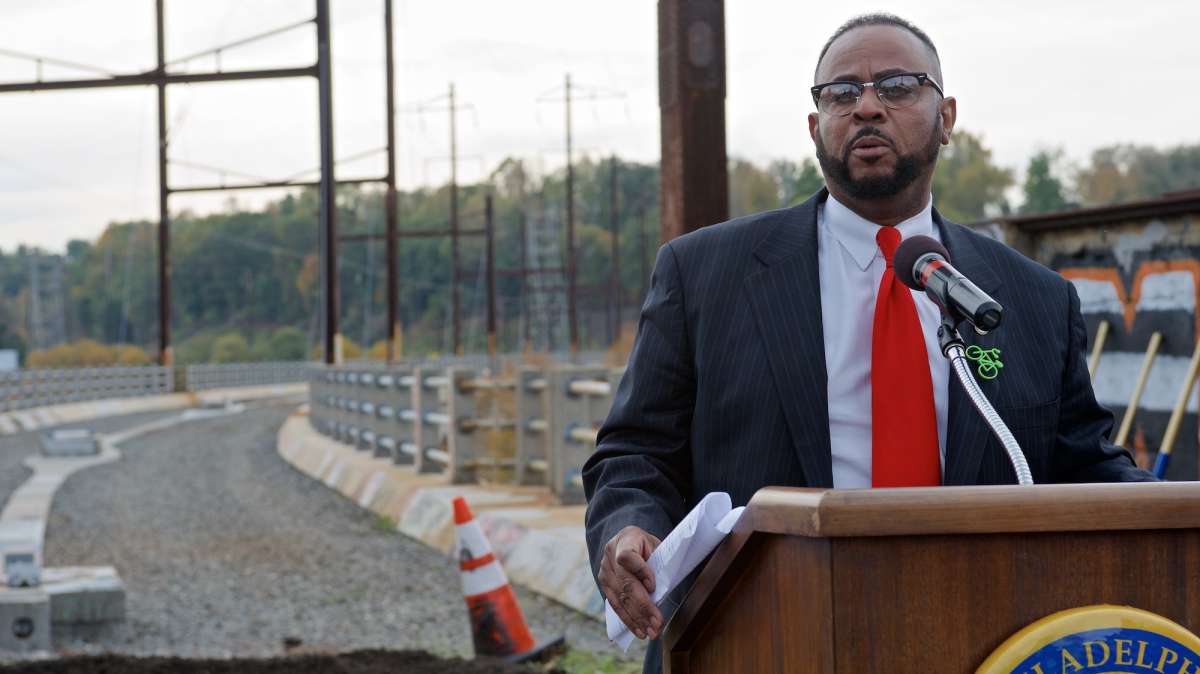
-

-
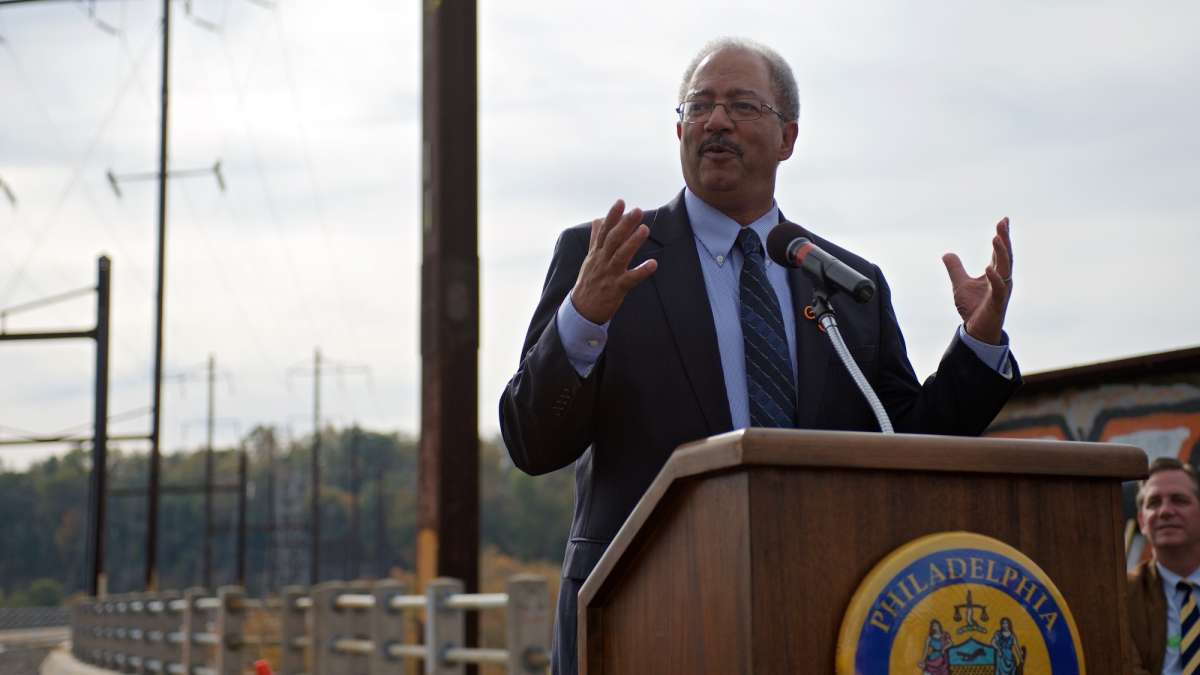
-

-

-

-
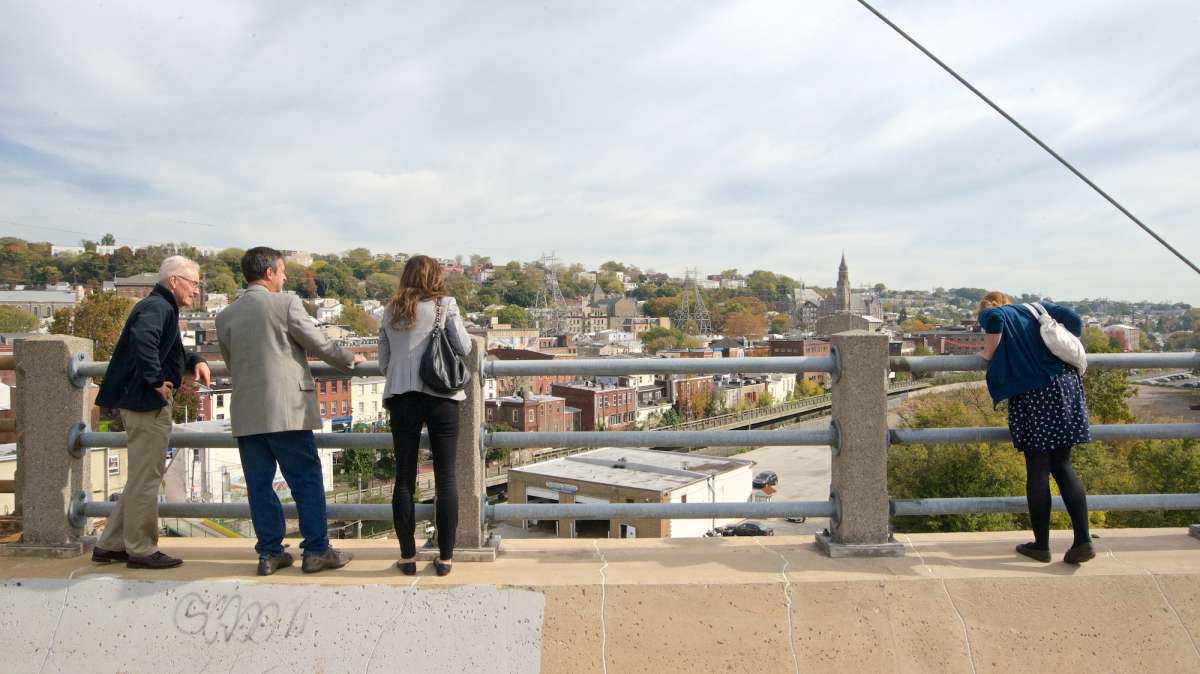
Checking out the view from atop the Manayunk Bridge Trail after Tuesday's ground-breaking ceremony. (Bas Slabbers/for NewsWorks)
-
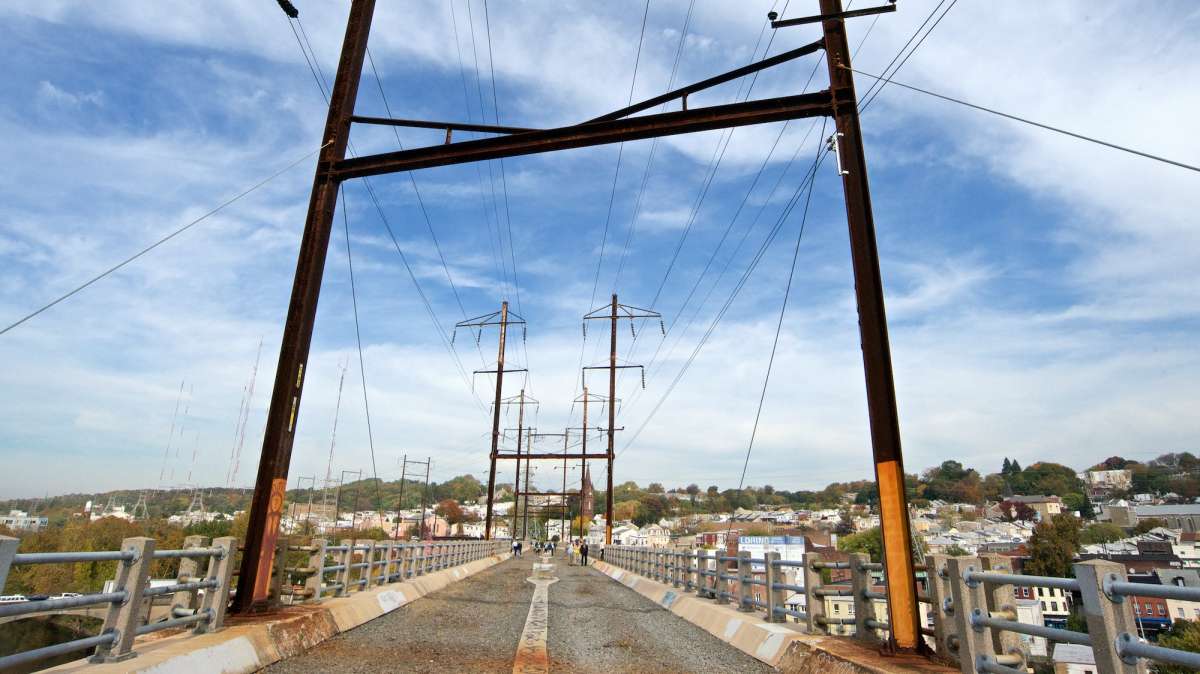
-

The Dalai Lama spoke on the importance of world unity and compassion at Princeton University on Tuesday morning. Dressed in red and gold robes and a bright orange Princeton cap, the Dalai Lama, the spiritual leader of Tibetans, alternated between serious and chuckling moments throughout the hour-and-a-half talk.
“We must think more seriously on the oneness of humanity,” said the Dalai Lama to the gymnasium packed with over 4,000 Princeton students, staff, and community members.
He frequently returned to the theme that the world needs a greater sense of unity between countries and peoples. The world is so interconnected that a nation can no longer excuse themselves from global responsibility by saying that problems outside their borders do not affect them, he said.
“East depends on west, west depends on east,” he said. “We need a sense of group responsibility.”
He says that children’s education focuses too much on national interests and materialistic concerns. Students should be taught about truly important values, like compassion and respect, he said, because it will lead to better understanding between peoples and greater tolerance of atheists and agnostics by believers in future generations.
Non-believers are “still brothers and sisters no matter their view on religion,” he said.
Recognized as the 14th Dalai Lama at the age of two, Tenzin Gyatso, the current Dalai Lama’s official name, has been the head monk of Tibetan Buddhists since he was formally installed in 1950 at the age of 15. The Dalai Lama and his Tibetan government-in-exile have been based in northern India since 1959, after he secretly escaped from Tibet amid growing Chinese occupation of the region.
While fighting for Tibet’s independence from Chinese occupation, he has been a major promoter of peaceful resistance and opposition. His efforts earned him the Nobel Peace Prize in 1989.
To make the 21st century happy and peaceful, prayer and “wishful thinking” will not be enough, he said at the lecture. Peace will only be possible through the actions of the young generations, he said, while pointing out to the students in the crowd.
“Whether we achieve it or not, it’s really worthwhile to make the attempt,” he added.
Urging students to differentiate between people and the bad things that they do, he said that understanding that even though a bad action must be stopped that does not mean we should hate the actor. He said he often contemplates about this difference when thinking of Chinese leaders.
“We were all created by God,” he said. “So we all have sparks of God in us.”
He also spoke about his childhood, saying that he remembers his mother as incredibly kind and prone to spoiling him.
“I easily bullied my mother,” he said, grinning widely as the crowd laughed.
The talk’s most surprising moment came during the question and answer session, when the Dalai Lama answered the question “What is the key to happiness?”
“Money,” he responded, to an eruption of laughter from the audience. “Or sex.”
Students in the audience were impressed with his friendly and lively attitude, even though he is a 79- year old world leader.
“He’s just so charming,” said Nik Hofer, a sophomore from Washington State. “He just exudes such a positive energy.”
“I don’t think I’ve ever heard of a religious leader talking so frankly,” said Winny Myat, a freshman from Burma. “He wasn’t so out of touch with the world the way I expected him to be.”
Tickets to the talk, which were given to students for free on a first-come, first-serve basis, had become a hot commodity over the past week, said Rachel Lim, a freshman from Richmond, Virginia. Students spammed list serves and offered payment in search of an extra spot.
Even so, the Dalai Lama is not without controversy. A group of protesters rallied outside of the gym with signs and banners, later marching through campus shouting “False Dalai Lama.” They are members of the International Shugden Community, a group that accuses the Dalai Lama of discriminating against their small sect of Buddhism.
A group supporting the Dalai Lama organized a counter-protest filled with cheering and traditional Buddhist dancing, while handing out fliers denying the Shugden Community’s accusations.
The Dalai Lama’s visit to Princeton was co-sponsored by the Kalmyk Three Jewels Foundation, a New Jersey-based organization that preserves and promotes the culture, religion, and language of the Kalmyk people. The Kalmyks are a historically Buddhist people from the northern Caucasus who revere the Dalai Lama. Kalmyks have now immigrated to a number of western countries, first arriving in the United States in 1951.
WHYY is your source for fact-based, in-depth journalism and information. As a nonprofit organization, we rely on financial support from readers like you. Please give today.




